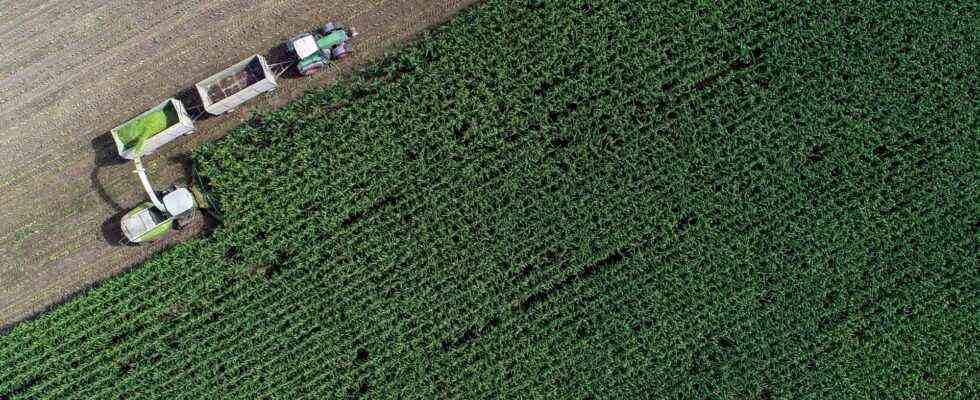Status: 07/07/2021 3:17 p.m.
Food price bets: That sounds immoral to many. Because the basis of life should not be an object of speculation. But some of these bets also work like insurance for farmers.
From Nicholas Buschschlueter,
ARD stock exchange editorial office
5.88 euros: This is the current price for 25 kilograms of corn. It doesn’t sound that expensive – but corn costs almost twice as much as it did a year ago. The prices for soy and wheat have also risen sharply in recent months. Because of its high price, corn is currently considered a top investment on the stock market with a sometimes higher return than crude oil – this is how the “Handelsblatt” calculated.
“Good” and “bad” speculation
Are speculators driving up the prices of agricultural products again, as happened in 2009/2010? No, says Rafaël Schneider, an expert in food security and agriculture at Welthungerhilfe. This time the main reasons are different. “On the one hand, we have had some crop failures in Brazil that have led to a shortage,” he explains. “At the same time, demand has risen sharply, which means the market for agricultural commodities has become very tight – and that drives up prices.”
ING Bank chief economist Carsten Brzeski also sees it that way. However, it is difficult to say what part the speculation has in the price development. Brzeski advocates differentiating between two types of speculation: “There is, so to speak, the ‘good’ speculation in which I can use financial products to cover myself against fluctuations in weather, supply and demand,” explains the economist. “And there is the ‘bad’ speculation, which ensures that prices are driven to the limit and that money is really simply made here with speculation.”
Futures protect farmers
According to this reading, the so-called futures belong to good speculation. Farmers use these financial products to sell their goods at a set price in the future. Futures are traded on the stock exchange; they are available on all sorts of raw materials such as wood or even flowers. Expert Schneider from Welthungerhilfe considers them to be of existential importance for farmers.
Farmers all over the world have basic investments. They have to till their fields, pay the rent, and sow the seeds. And already at the time of sowing they have to calculate: ‘Will my harvest be profitable?’ – And for this they fix a price in futures and then calculate with it.
So futures represent a kind of insurance for farmers. Without them, farmers would have no planning security.
Consumers feel the effects of rising prices
However, German consumers will also feel the effects of the rising prices on agricultural raw materials. Nestlé and Coca Cola have already announced that they will be passing them on to customers. Agricultural expert Schneider expects only a slight increase. “We spend a comparatively small percentage of our income on food,” he says, putting it at 15 to 30 percent. In other regions of the world, however, it is 60 to 100 percent. “You can tell that, with prices rising slightly, our scope is much greater than in other regions of the world.”
So the big corporations can push through higher food prices, and some investors are getting richer by betting on agricultural products. But is that why the for-profit trade in agricultural commodities is immoral? Even Welthungerhilfe would not go that far.
Betting on agricultural products
Nicolas Buschschlueter, HR, 7/7/2021 10:27 a.m.

